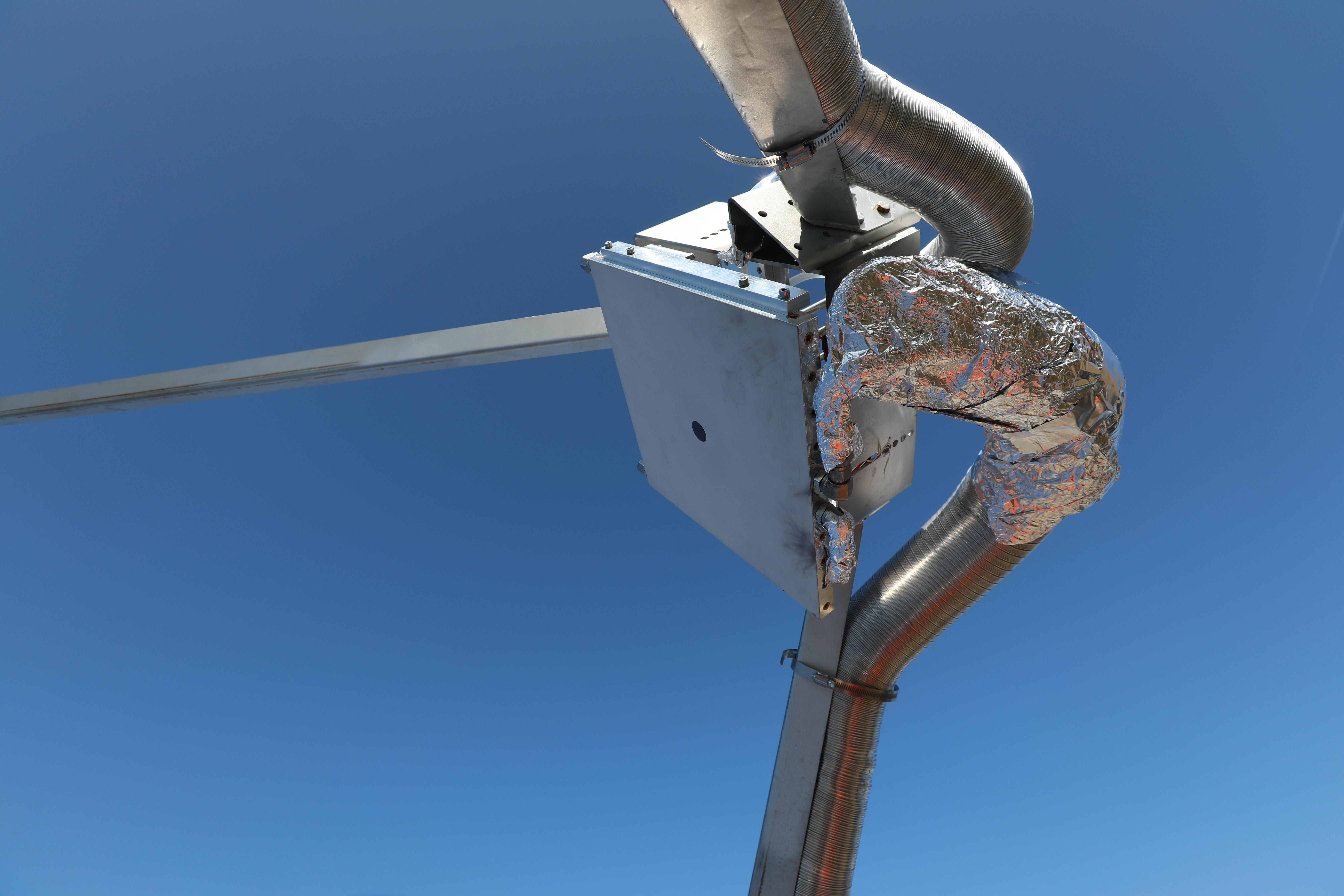Hydrogen will play a key role in reducing our dependence on fossil fuels. It can be sustainably produced by using solar energy to split water molecules. The resulting clean energy can be stored, used to fuel cars or converted into electricity on demand. But making it reliably on a large scale and at an affordable cost is a challenge for researchers. Efficient solar hydrogen production requires rare and expensive materials – for both the solar cells and the catalyst – in order to collect energy and then convert it.
Scientists at EPFL’s Laboratory of Renewable Energy Science and Engineering (LRESE) came up with the idea of concentrating solar irradiation to produce a larger amount of hydrogen over a given area at a lower cost. They developed an enhanced photo-electrochemical system that, when used in conjunction with concentrated solar irradiation and smart thermal management, can turn solar power into hydrogen with a 17% conversion rate and unprecedented power and current density. What’s more, their technology is stable and can handle the stochastic dynamics of daily solar irradiation.
Read more at Swiss Federal Institute of Technology Lausanne (EPFL)
Image Credit: Maxime Marendaz / 2019 EPFL


